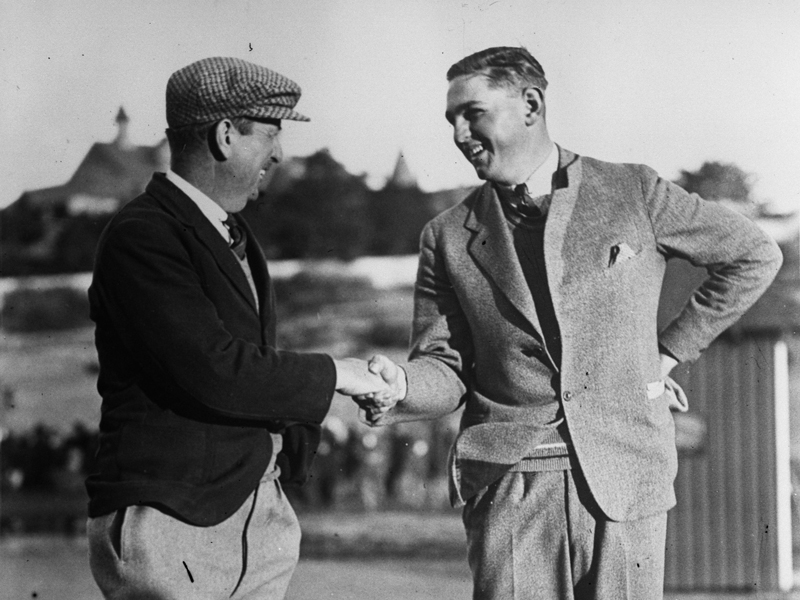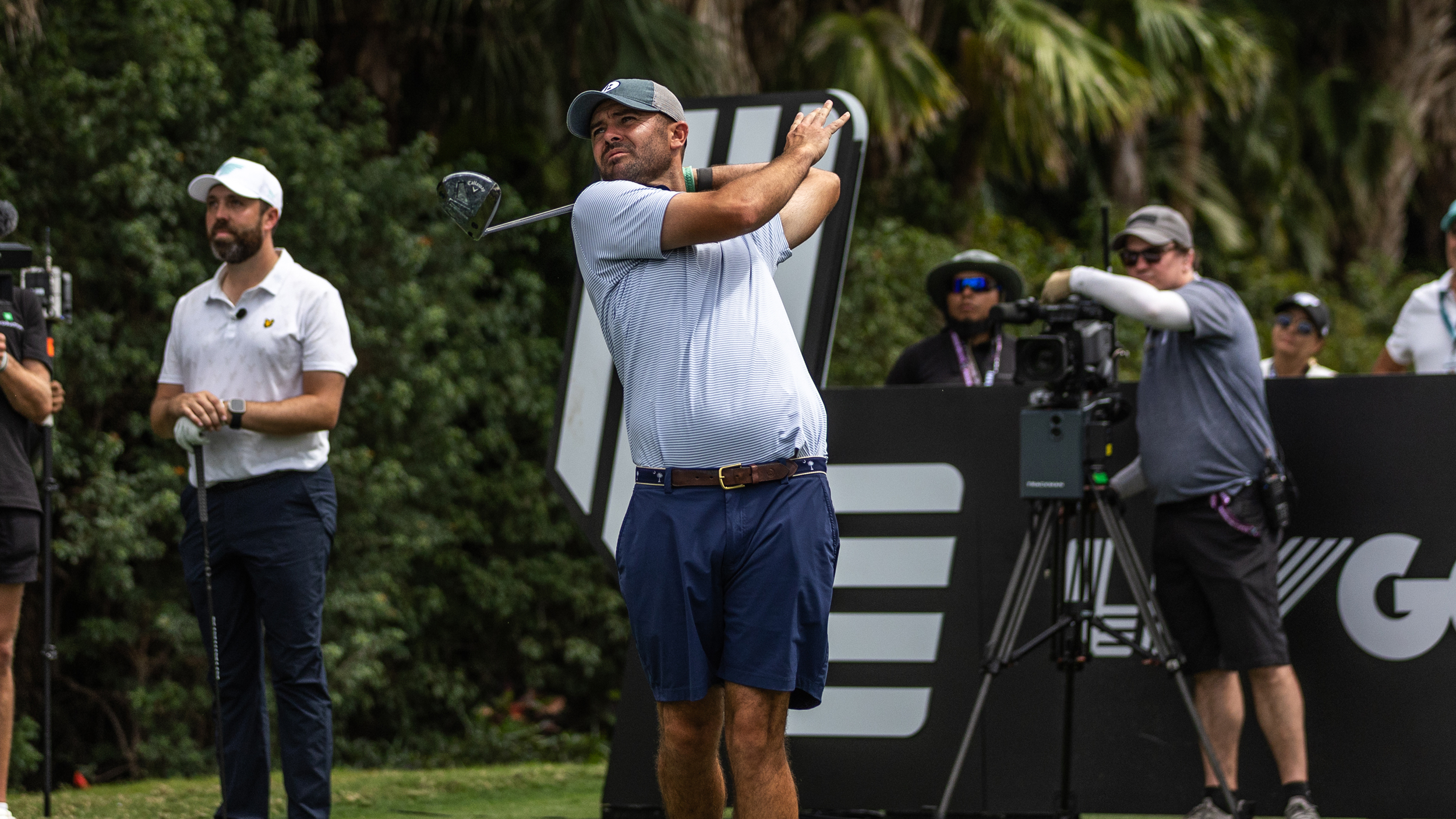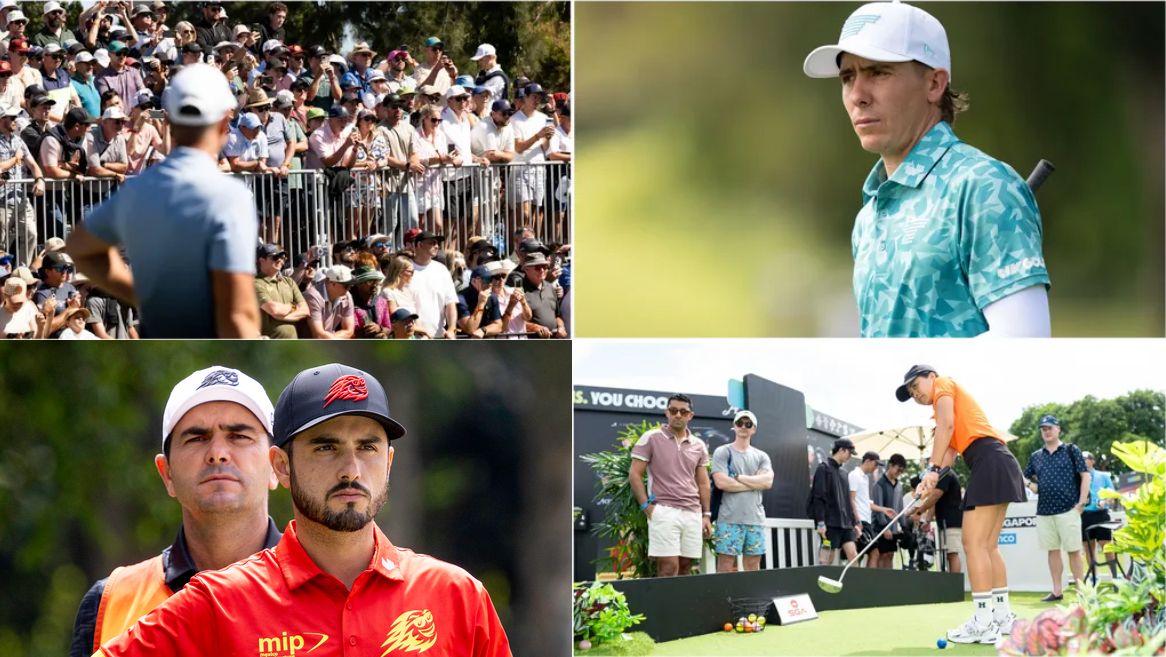What makes a great playing partner?
What are the key attributes that make for the perfect companion on the fairways?


Golf is hard enough without having to deal with a difficult playing partner. What are the key attributes that make for the perfect companion on the fairways?
Golf is predominantly a solo sport, a personal battle against the course and the elements. There are many and varied challenges to be faced on the links, from controlling ball flight to controlling inner-demons. Most golfers would argue there are few, if any, sports that provide such a complete examination of an individual’s mental fortitude and physical dexterity.
But, although the golfer is largely in control of their on-course destiny, they will always have company in competitive circumstances. To succeed in scaling their personal golfing mountain, the intrepid golfer needs a solid team of playing partners who encourage rather than irritate, display positivity rather than despondency.
We’ve all experienced both ends of the spectrum – playing partners who have buoyed us and spurred us to success, others who have infuriated us to a point of capitulation.
So what makes for a great playing partner? What are the virtues we look for in a companion on the fairways, and what are the most annoying characteristics one can display? And remember when reading this; do unto others as you would have done unto you!
A fundamental attribute in a good playing partner is time-sensitivity. Their golfing ability is largely incidental if they’re conscious of the necessity to keep up with the group in front rather than just ahead of the group behind. There is nothing more distracting in competitive golf than feeling your group is flagging, and that only you are aware of the predicament. You become anxious and tight, you speed up your pre-shot routine and hurry to your ball, grinding your teeth as you watch your partner sauntering along, taking an eon to select a club and an eternity to make a swing.
A good playing partner will be ready to play when it’s their turn, they will play a provisional ball if there’s any doubt as to their original’s whereabouts, they will be quick to abandon a search if it’s clear the ball is gone or if there’d be no advantage in finding it. If you’re going to lose it, lose it quickly.
Get the Golf Monthly Newsletter
Subscribe to the Golf Monthly newsletter to stay up to date with all the latest tour news, equipment news, reviews, head-to-heads and buyer’s guides from our team of experienced experts.
Although it’s not a player’s ability that makes them a good partner, it is pleasant to watch someone who has a nice rhythm and plays a sensible game. It can be useful to partner someone who is a little better than you, to watch how they construct a score and perhaps feel you’re learning a little while you’re out there. All golfers are constantly learning, whether it’s regards physical or mental approach.
With regards the mental game, it’s crucial to keep your cool on the golf course, no matter what the Golfing Gods throw at you. It’s much easier to do that if the others in your group retain, at least, the illusion of composure. The considerate playing partner will maintain an outwardly philosophical approach, even if they’re suffering inner turmoil. They won’t go into a huff for holes at a time, you won’t have to duck as a nine-iron comes hurtling across a fairway, they may even have a wry chuckle at their misfortunes rather than unleashing a torrent of curses every time they miss a shot. The angry playing partner can be tough to deal with, as you end up dreading a poor shot from them more than one of your own. Keep in mind… do unto others…
A great playing partner will have a level of interest in what you’re doing on course. For a start they’ll watch your ball. If visibility is tricky they’ll concentrate as you drive off, and if your ball strays off line they’ll watch it down. Then, if they’re marking your card, they will count how many shots you’re taking. They won’t ask at the conclusion of every hole, “how many there?” Nor will they make you say your score out loud when you’ve just hit two out of bounds and racked up an eight.
If their score has gone west with no hope of redemption and yours is still intact, they’ll shift their allegiances towards your efforts; paying extra attention to where your ball goes and maybe even offering some carefully chosen, and well-timed, words of encouragement.
There are some people, though, who just can’t help but say the wrong thing at the wrong time on the golf course. Even if they’re trying to be helpful, it just seems they’re testing you mentally. The sensitive playing partner will, for instance, not comment on how straight your driving has been just as you prepare to tee it up on the narrowest hole on the course. Nor will they give you that sage piece of advice; “Take your time!” as you prepare to finish off what you’d previously believed to be a mere tap-in.
The thoughtful playing partner will be interested enough in you as a person to find out a little about you on the way round. They won’t pry, maybe just enquire what other sports you like or ask if you watch Masterchef: Just enough to create a relaxed environment. They won’t talk at you incessantly about their lives, or burden you with their problems. There’s quite enough to be stressed about on the fairways without hearing of your playing partner’s divorce proceedings.
A great playing partner will be a comrade for a few hours, both in triumph and adversity. They’ll be generous enough to celebrate your successes but they won’t get ahead of themselves. Nobody on a roll of good scores wants to hear the words, “If you can just keep this going….”
Through tougher times they’ll empathise without being patronising, they might even be able to lighten your mood with a few soothing words. They’ll play smoothly and at a sensible pace, they’ll know when to speak and when to keep shtum. They might not be a friend off the course, but if they’re your perfect match on the fairways, a great playing partner is to be appreciated and respected.

Fergus is Golf Monthly's resident expert on the history of the game and has written extensively on that subject. He has also worked with Golf Monthly to produce a podcast series. Called 18 Majors: The Golf History Show it offers new and in-depth perspectives on some of the most important moments in golf's long history. You can find all the details about it here.
He is a golf obsessive and 1-handicapper. Growing up in the North East of Scotland, golf runs through his veins and his passion for the sport was bolstered during his time at St Andrews university studying history. He went on to earn a post graduate diploma from the London School of Journalism. Fergus has worked for Golf Monthly since 2004 and has written two books on the game; "Great Golf Debates" together with Jezz Ellwood of Golf Monthly and the history section of "The Ultimate Golf Book" together with Neil Tappin , also of Golf Monthly.
Fergus once shanked a ball from just over Granny Clark's Wynd on the 18th of the Old Course that struck the St Andrews Golf Club and rebounded into the Valley of Sin, from where he saved par. Who says there's no golfing god?
-
 Reports: Wesley Bryan Suspended By PGA Tour After Playing In LIV Golf Duels
Reports: Wesley Bryan Suspended By PGA Tour After Playing In LIV Golf DuelsThe 2017 RBC Heritage winner is said to have been suspended by the PGA Tour after teeing it up in the recent LIV Golf creator event in Miami
By Elliott Heath
-
 LIV Golf Mexico City: Book Your Tickets To See The Stars Of The Game
LIV Golf Mexico City: Book Your Tickets To See The Stars Of The GameMexico City welcomes LIV Golf's all-star roster later this month, where you can see the world's best players and enjoy the show and the family friendly atmosphere
By Golf Monthly